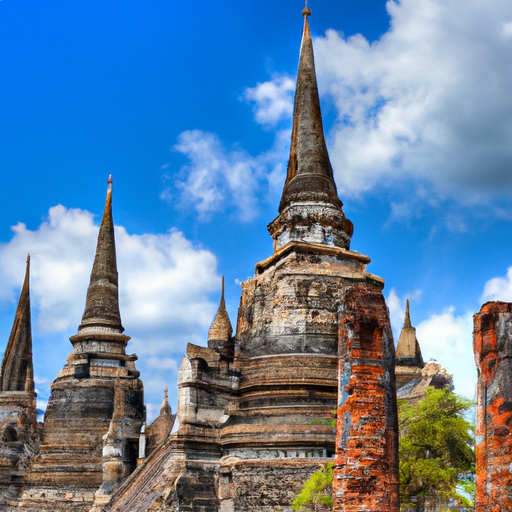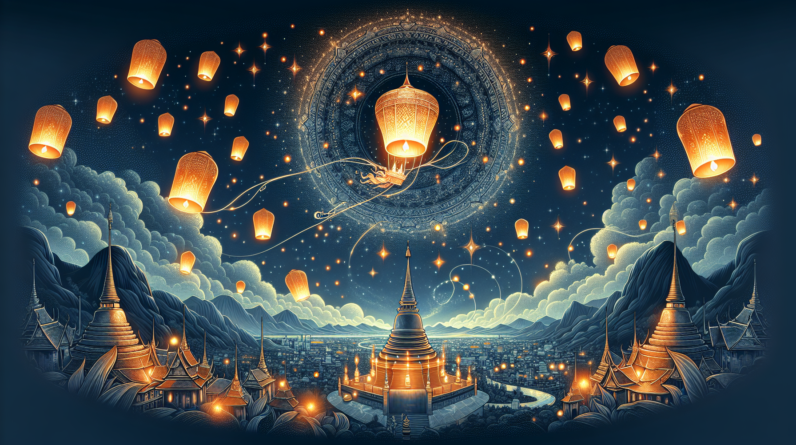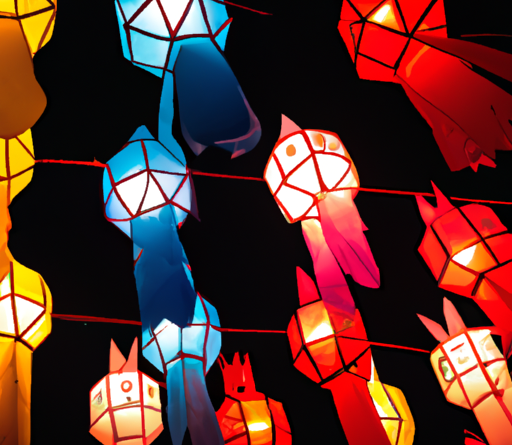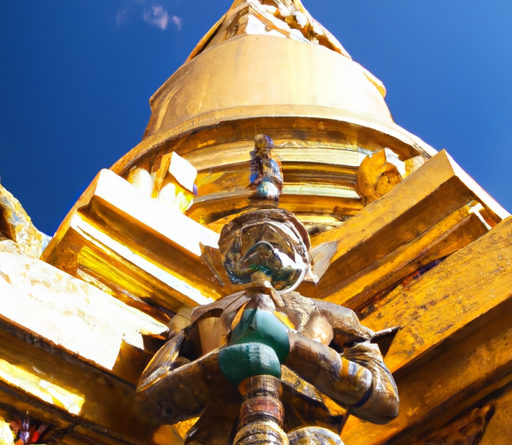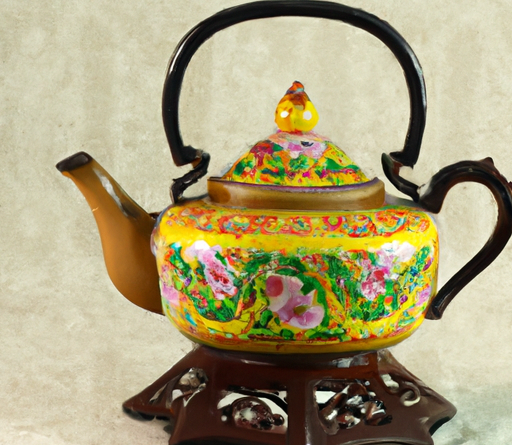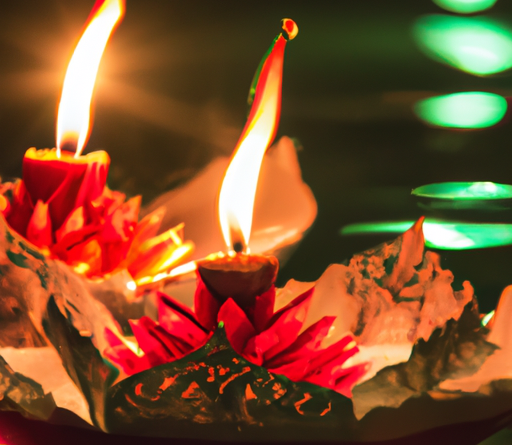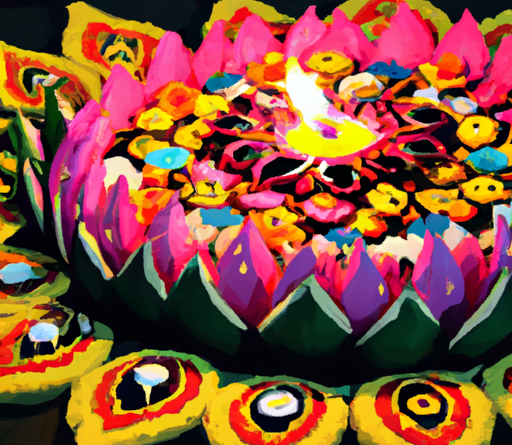
Step into the vibrant world of traditional Thai festivals and experience the magic that unfolds in each celebration. In this article, you will discover a captivating insight into the myths surrounding these festivals and the truth behind them. From the renowned Songkran water festival to the mesmerizing Loy Krathong lantern festival, we will debunk common misconceptions, allowing you to fully embrace the cultural richness and authenticity of these remarkable events. So, fasten your seatbelts and get ready to embark on a fascinating journey through the colorful traditions of Thailand!
Myth: All Thai festivals are the same
Each festival has a unique significance
Contrary to popular belief, Thai festivals are not all the same. Each festival holds its own unique significance and is celebrated for different reasons. For example, the most well-known festival, Songkran, is a celebration of the Thai New Year. It is a time to cleanse and purify both physically and spiritually, symbolized by the famous water fights. On the other hand, Loy Krathong is a festival of lights where people release beautifully decorated floating baskets onto rivers and canals, symbolizing the letting go of negativity and making wishes for the future. Each festival offers visitors a glimpse into the rich cultural heritage and traditions of Thailand.
Various festivals throughout the year
Another myth that needs to be debunked is the notion that there is only one Thai festival. In fact, there are numerous festivals celebrated throughout the year, providing tourists with plenty of opportunities to immerse themselves in the vibrant Thai culture. From Songkran in April to Phi Ta Khon in June to the Yi Peng Lantern Festival in November, there are festivals happening year-round. These festivals showcase different aspects of Thai traditions and allow visitors to experience the diversity and beauty of Thai culture.
Myth: Thai festivals are only for locals
Festivals are open to tourists
Don’t be fooled into thinking that Thai festivals are exclusive to locals. On the contrary, festivals in Thailand are open to tourists, and visitors are warmly welcomed to join in the celebrations. Thais are known for their hospitality and love sharing their culture with others. Whether you are a solo traveler or part of a group, you will be greeted with open arms and encouraged to participate in the festivities. So, don’t hesitate to join in the fun and make lasting memories during your visit to Thailand.
Tourists can actively participate
Participating in Thai festivals is not limited to merely observing. As a tourist, you have the unique opportunity to actively engage in the celebrations. From joining the water fights during Songkran to floating your own krathong during Loy Krathong, there are plenty of ways for you to get involved. Many festivals also offer cultural performances, traditional games, and workshops where you can learn traditional crafts or dances. Embrace the spirit of the festivals, let loose, and fully immerse yourself in the vibrant atmosphere that Thailand’s festivals have to offer.
Myth: Traditional Thai festivals are overrated
Preservation of cultural heritage
Thai festivals have been celebrated for centuries and hold immense cultural significance. These festivals act as a means to preserve and showcase the country’s rich cultural heritage. The traditions, customs, and rituals associated with each festival are deeply rooted in Thai history and have been passed down through generations. By celebrating these festivals, Thais proudly keep their heritage alive and ensure that the customs are not forgotten. So, it’s not just about putting on a show for tourists; it’s a way for Thais to honor their ancestors and preserve their cultural identity.
Rich history and symbolism
Traditional Thai festivals are not overrated, but rather fascinating events that provide an insight into the country’s history and symbolism. Each festival is steeped in tradition and carries profound symbolism. For instance, during the Yi Peng Lantern Festival, thousands of glowing lanterns are released into the sky, symbolizing the release of worries and bringing good luck. This rich history and symbolism make Thai festivals an extraordinary experience that goes beyond mere entertainment. So, don’t underestimate the cultural significance and historical value of these festivals when planning your trip to Thailand.
Myth: Thai festivals are all about water fights
Songkran: The water festival
While it is true that Songkran is famous for its water fights, Thai festivals are not solely about water battles. Songkran, also known as the Water Festival, is celebrated to mark the Thai New Year and is a time of cleansing and renewal. It may be most notorious for its water fights, where people joyfully throw water at each other, but there is much more to this festival than that. Songkran is also a time for visiting temples, making merit, and paying respects to elders. It’s an opportunity to engage in traditional rituals, such as pouring scented water over Buddha statues, which symbolizes purification and renewal. So, if you thought Thai festivals are all about water fights, think again.
Other festivals with different themes
Thai festivals are incredibly diverse and offer a wide range of themes beyond water fights. From religious ceremonies to cultural performances to traditional processions, there is something for everyone. For example, the Hua Hin Jazz Festival celebrates music and showcases local and international jazz artists, while the Chiang Mai Flower Festival is a celebration of vibrant blooms and floral displays. These festivals highlight different aspects of Thai culture, ensuring that there is a festival to suit every interest and preference. So, if water fights aren’t your thing, don’t worry, there are plenty of other unique festivals to explore in Thailand.
Myth: Thai festivals are only celebrated in Bangkok
Festivals celebrated all across Thailand
While Bangkok is undoubtedly a hub for festivals in Thailand, it is a misconception to think that Thai festivals are limited to the capital city. Festivals are celebrated all across the country, providing visitors with opportunities to explore different regions and experience their distinct cultural traditions. For instance, the Loy Krathong Festival is celebrated nationwide, with each region adding its own unique touch to the festivities. Chiang Mai’s Yi Peng Lantern Festival is another example of a festival celebrated outside of Bangkok. By venturing beyond the capital, you can discover the true diversity of Thai festivals and experience the vibrant traditions of different regions.
Unique regional variations
Thailand’s regional diversity is beautifully reflected in the unique variations of festivals celebrated across the country. Each region has its own customs, traditions, and cultural practices that are showcased during their respective festivals. For instance, the Phi Ta Khon festival in Loei province is known for its colorful ghost masks and vibrant processions, while the Rocket Festival in northeastern Thailand features the launching of homemade rockets to bring rain for the upcoming planting season. These regional variations add depth and authenticity to Thai festivals, making them even more intriguing and captivating for tourists.
Myth: Thai festivals are too crowded for comfort
Strategies to avoid crowds
It’s true that Thai festivals can attract a large number of participants, but there are strategies you can employ to avoid the crowds and still enjoy the festivities comfortably. Firstly, plan your visit during the early days of the festival when the crowds are usually smaller. Additionally, consider attending festivals held in smaller towns or rural areas, which tend to be less crowded compared to the major cities. Another tip is to arrive early in the morning or later in the evening when the crowds are generally thinner. By being strategic and planning ahead, you can navigate the festivals without feeling overwhelmed by the crowds.
Alternatives for a more intimate experience
If you prefer a more intimate experience, there are plenty of alternatives to the larger, more crowded festivals. Explore lesser-known festivals and events that may not be as well-known to tourists but still offer an authentic and immersive cultural experience. These smaller festivals often have a more localized feel and allow for more personal interactions with locals. Additionally, consider attending cultural workshops or participating in traditional activities organized specifically for tourists. These experiences provide a deeper understanding of Thai culture while avoiding the overwhelming crowds that can sometimes accompany larger festivals.
Myth: Thai festivals are only religious
Blend of religious and cultural elements
While religious elements are certainly present, Thai festivals are a beautiful blend of both religious and cultural traditions. Festivals act as a way to pay homage to deities and ancestors, and religious ceremonies often form a significant part of the festivities. However, they also serve as a platform for preserving and celebrating Thai cultural practices, showcasing traditional performances, dances, music, and art. Festivals are a reflection of the Thai way of life and are deeply intertwined with the cultural fabric of the country. So, when attending Thai festivals, you will witness a harmonious blend of religious and cultural elements that work together to create a unique and captivating experience.
Festivals promoting unity and community
Thai festivals are not just about individual religious practices; they are community-focused celebrations that promote unity and togetherness. Festivals provide an opportunity for people to come together, celebrate their shared traditions, and strengthen social bonds. From organizing parades to communal meals to vibrant cultural performances, festivals create an atmosphere of camaraderie and inclusivity. They offer a chance for locals and tourists alike to connect with the local community, fostering a sense of belonging and promoting intercultural understanding. So, when you participate in Thai festivals, you are not just attending a religious ceremony but becoming part of a larger celebration of unity and community.
Myth: Festival traditions cannot be experienced by tourists
Opportunity for cultural immersion
Thai festivals present a fantastic opportunity for cultural immersion, allowing tourists to experience firsthand the country’s vibrant traditions and customs. Through active participation, visitors can gain a deeper understanding of Thai culture and foster genuine connections with locals. By joining in the rituals, observing traditional practices and engaging with the local community, tourists can immerse themselves in the authentic spirit of the festivals. Whether it’s learning to make krathong during Loy Krathong or joining a traditional dance during the Rocket Festival, these experiences offer a genuine insight into Thai traditions that surpasses merely being a spectator.
Learning traditional customs and practices
Far from being inaccessible, Thai festivals offer a wonderful platform for tourists to learn traditional customs and practices. Many festivals host workshops and demonstrations, allowing visitors to learn traditional arts and crafts, like making flower garlands or crafting lanterns. Additionally, visitors can witness and learn about traditional rituals and ceremonies, ranging from the intricate process of creating a krathong to the proper way of paying respects to elders during Songkran. These opportunities for hands-on learning enable tourists to engage with Thai culture in a meaningful way and gain a deeper appreciation for the customs and practices that make Thai festivals so special.
Myth: Thai festivals are all about superstitions
Beliefs and superstitions intertwined
While it is true that Thai festivals incorporate elements of traditional beliefs and superstitions, they are not solely based on irrational beliefs. Thai festivals are deeply rooted in cultural practices and historical significance. However, it is important to recognize that beliefs and superstitions play a role in shaping these traditions. For example, during the Chinese New Year celebrations in Thailand, people hang red lanterns and banners to ward off evil spirits and bring good luck. These traditions may have their origins in ancient superstitions, but they are also reflections of cultural identity and serve as a means to honor ancestors and invite blessings. So, don’t dismiss Thai festivals as purely superstitious; they are much more complex and meaningful than that.
Respecting local customs and traditions
When attending Thai festivals as a tourist, it is crucial to respect the local customs and traditions, including the superstitions that are part of the cultural fabric. While you may not personally believe in these superstitions, it is important to approach them with an open mind and show reverence for the locals’ beliefs. For instance, during the Loy Krathong festival, it is customary to make a wish as you release your krathong onto the water. While you may not believe in the power of wishes, participating in this tradition shows respect for the cultural significance of the festival. By embracing and respecting local customs, you contribute to creating an inclusive and harmonious atmosphere during the celebrations.
Myth: Thai festivals are not family-friendly
Festivals cater to families
Thai festivals are incredibly family-friendly and provide a safe and enjoyable environment for people of all ages. Families are at the heart of Thai society, and festivals are an opportunity for them to come together and celebrate. Many festivals include activities specifically designed for children, such as traditional games, face painting, and puppet shows. Additionally, festivals often feature live music performances and cultural shows that can be enjoyed by the whole family. Safety measures are also put in place to ensure that families have a pleasant and secure experience during the festivities. So, families can rest assured that Thai festivals offer a fun and enriching experience for everyone, regardless of age.
Activities and entertainment suitable for all ages
Thai festivals abound with activities and entertainment options that are suitable for people of all ages. Whether you are a child, a teenager, or an adult, there is something for everyone to enjoy. From cultural performances, street parades, and traditional dances to food stalls, game booths, and lively music, there is never a dull moment during Thai festivals. Families can create lasting memories by participating in activities together, trying delicious Thai street food, and marveling at the vibrant displays of art and culture. Festivals provide a wonderful opportunity for families to bond, have fun, and celebrate together, creating cherished moments that will be remembered for years to come.
In conclusion, traditional Thai festivals are not to be missed when visiting Thailand. By debunking these myths and embracing the true essence of Thai festivals, tourists can enjoy an immersive cultural experience that goes beyond conventional sightseeing. From the unique significance of each festival to the opportunities for active participation, there is something for everyone to enjoy and learn from. Thai festivals offer a blend of religious and cultural elements, promoting unity, preserving heritage, and fostering a sense of community. So, when planning your trip to Thailand, make sure to include at least one festival in your itinerary and open yourself up to a world of vibrant traditions, rich history, and unforgettable celebrations.
